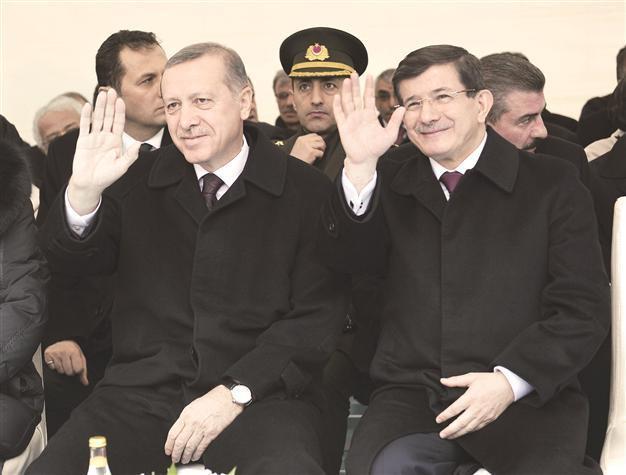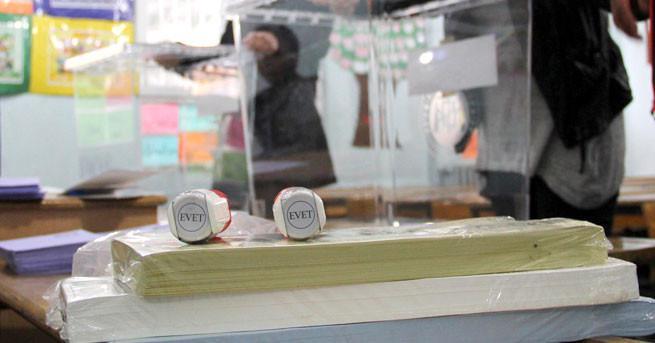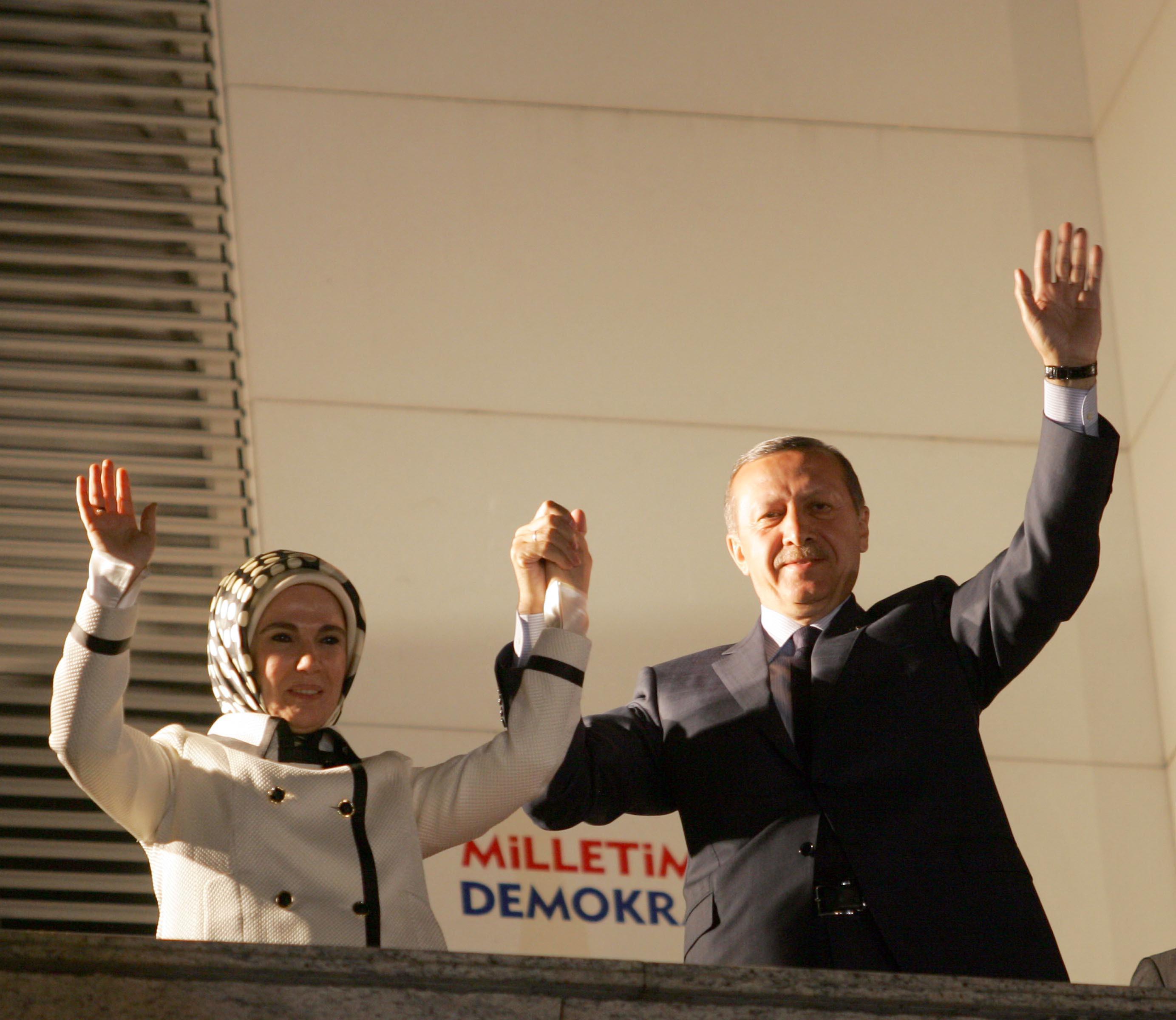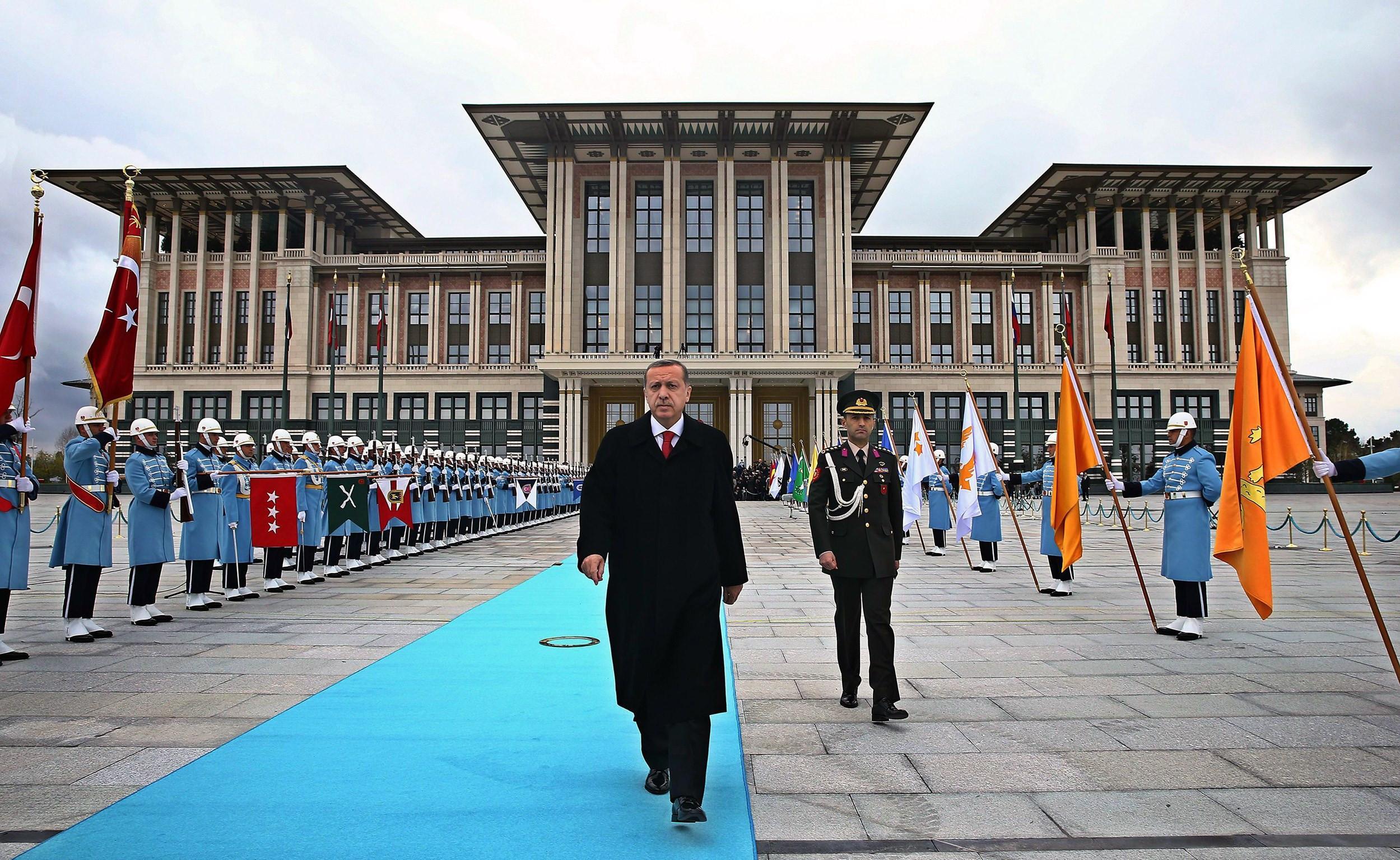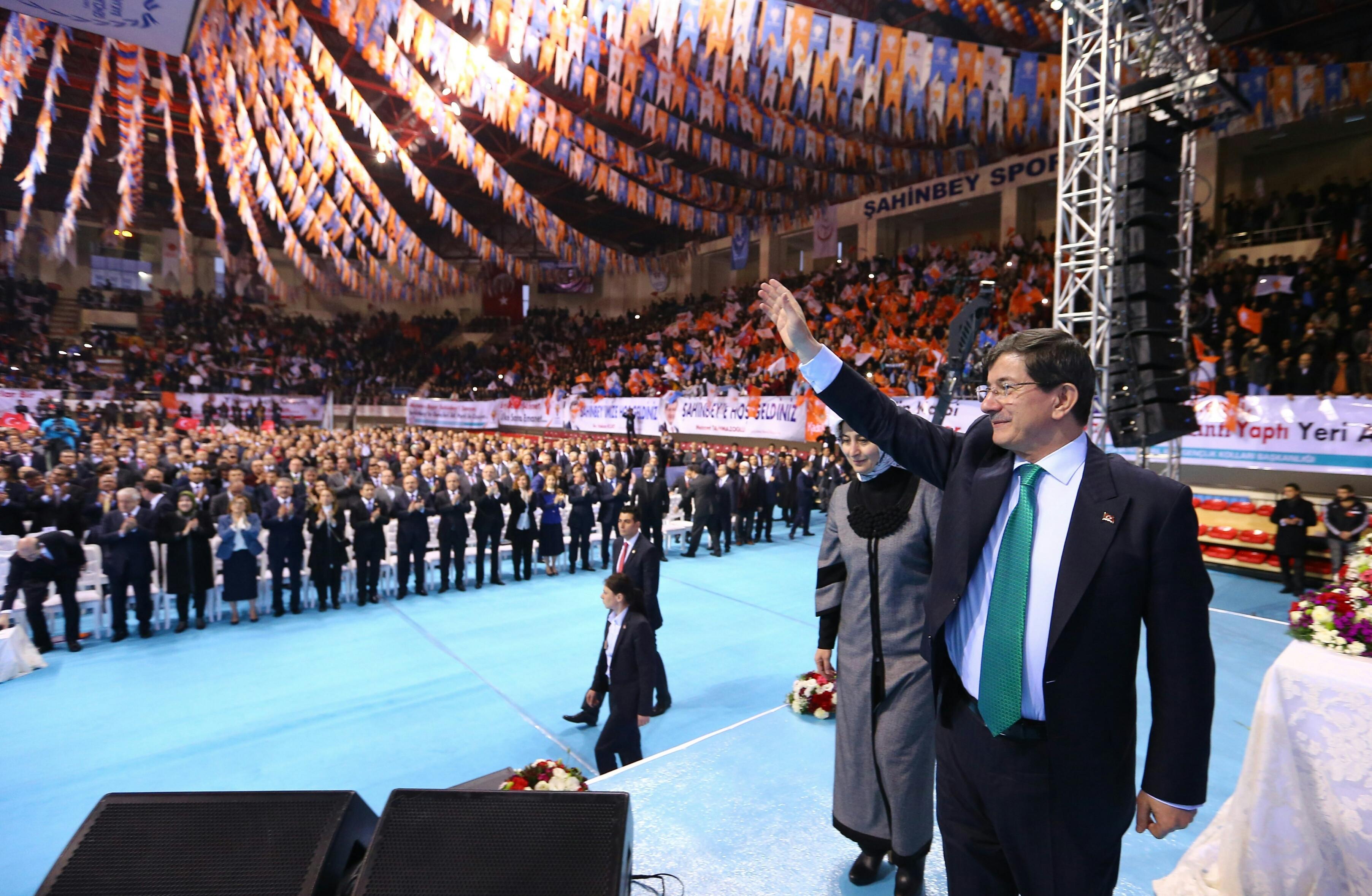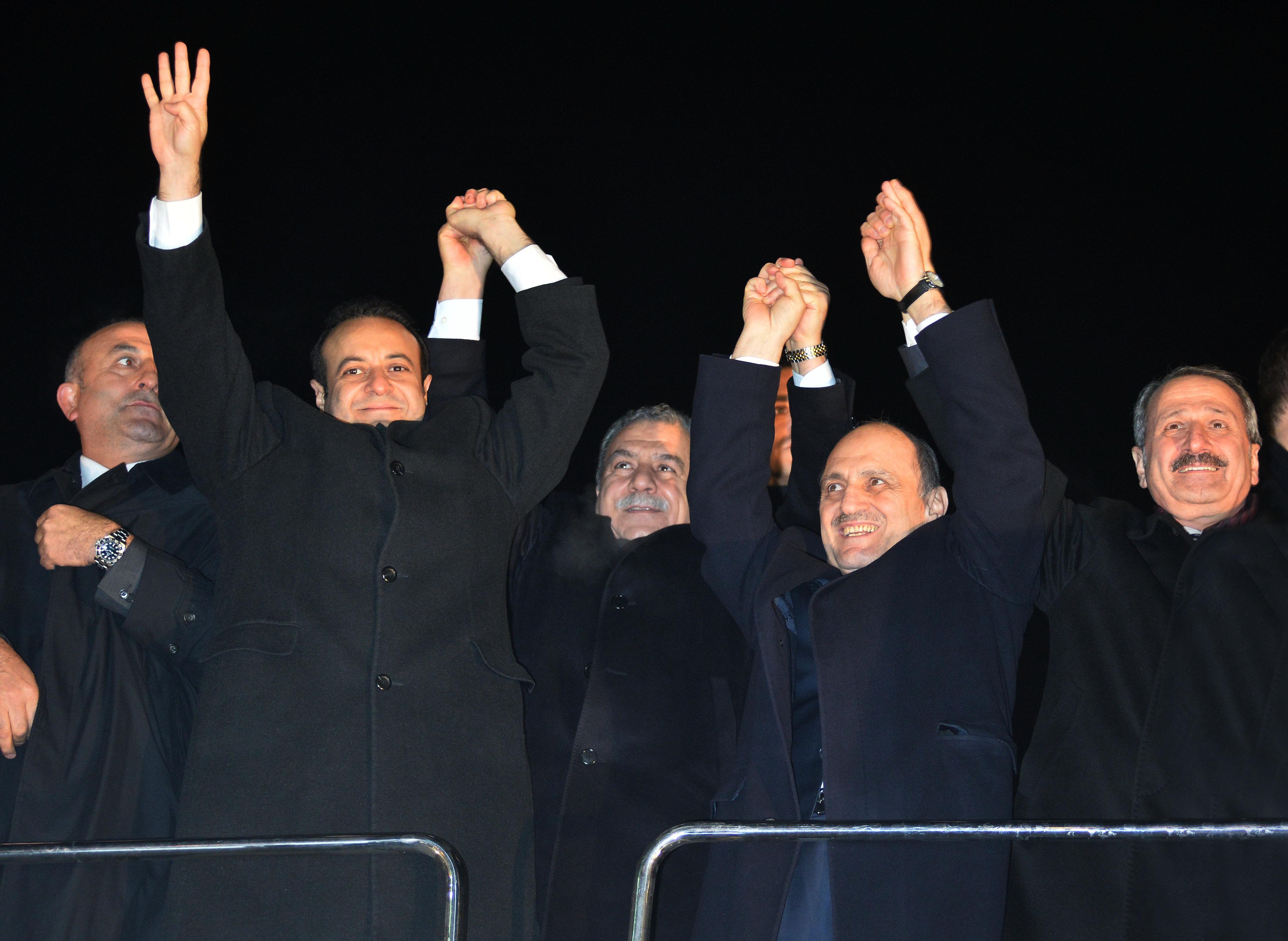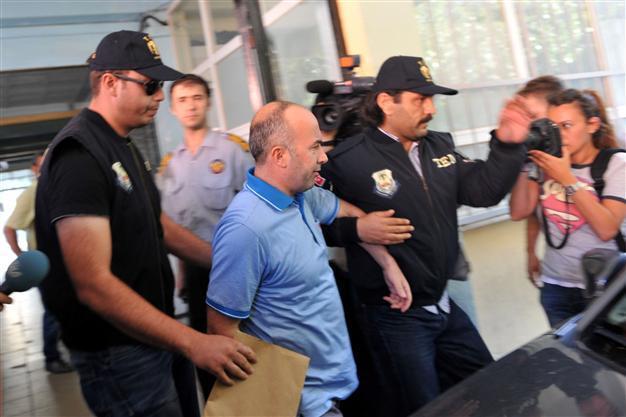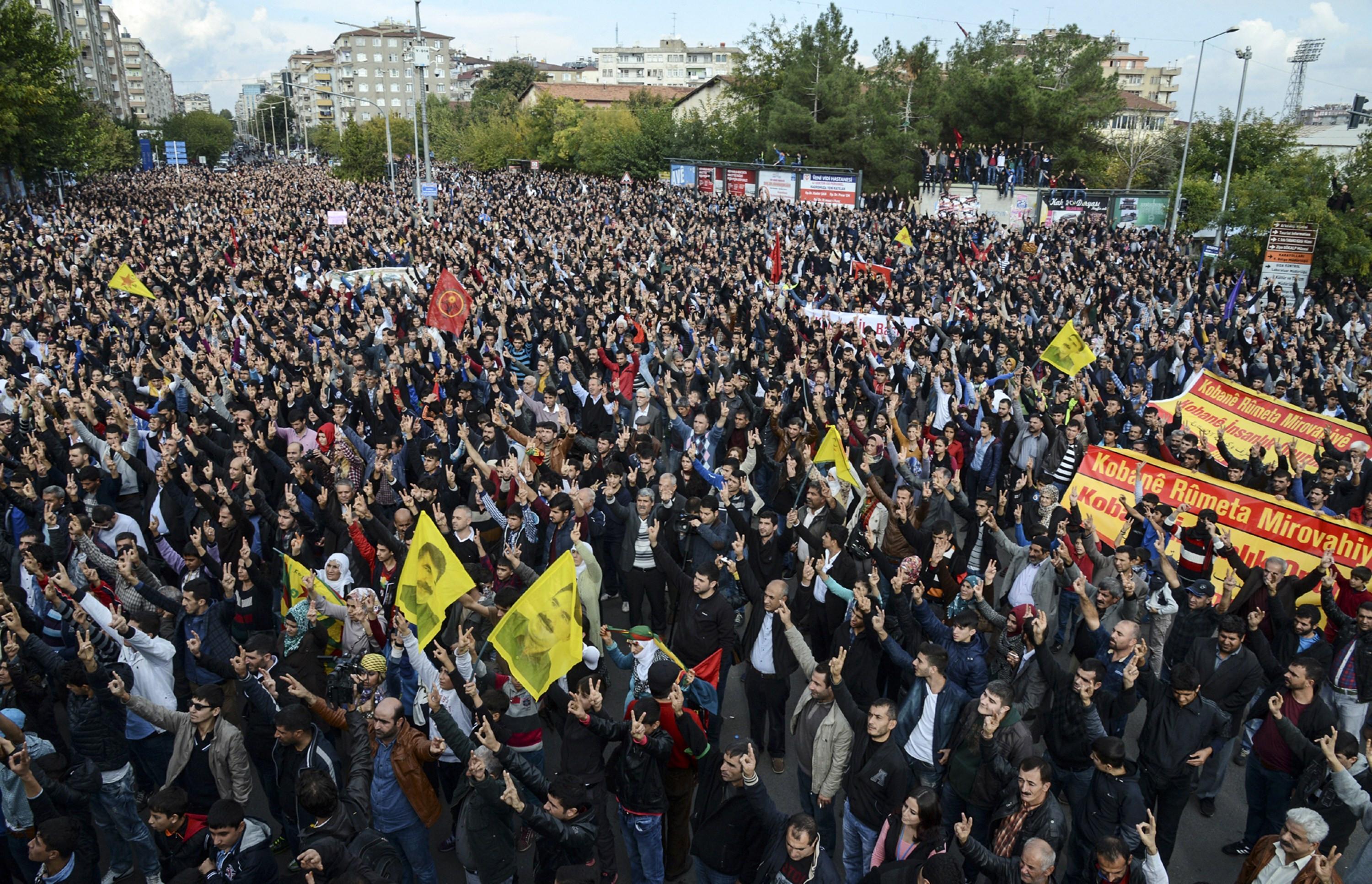A year of elections
Serkan Demirtaş ANKARA

AA Photo
A long and stressful 2014 brought with it a new president, a new prime minister and a new political balance with the undefeated ruling Justice and Development Party (AKP) consolidating its power in local and presidential elections against opposition parties and its erstwhile ally, the Fethullah Gülen community.
The two critical days of 2014 were March 30 and Aug. 10, the respective days of local and presidential elections. Both polls ended with a clear victory for the AKP with its indisputable leader, Recep Tayyip Erdoğan, becoming the 12th president of Turkey, as well as the first head of the nation elected through a popular vote.
Here are some important political developments of 2014:
Local elections won by ruling AKP
On March 30, around 50 million Turkish voters cast their votes to elect their local authorities. The AKP won 45.5 percent of votes while the Republican People’s Party (CHP) had 31 percent and the Nationalist Movement Party (MHP) had 13.6 percent of the votes. The AKP succeeded in retaining Istanbul and Ankara although the race in the latter against the CHP’s candidate was neck and neck. The CHP was successful in maintaining its influence, especially in the western part of the country, while the Peoples’ Democracy Party (HDP) won all mayoral seats in the Southeast Anatolian region. (
Click here to read more about the election day as it happened)
Erdoğan wins presidential polls
The most important result of the March 30 elections was the harbinger
that the AKP’s candidate would get at least 50 percent of the votes in
presidential polls. It was clear to see that Erdoğan fully intended to
be elected as the president of the country, giving him the chance to
rule Turkey until 2024 if elected a second time in 2019. However, former
President Abdullah Gül also made clear his intention that he would seek
another term as the president and, if not, would seek to return to
active politics as prime minister. A debate lasting months brought
nothing for Gül, who was effectively shunted off into retirement.
Erdoğan’s
candidacy was announced as the CHP and the MHP, in a rare deal, agreed
to back a joint contender, Professor Ekmeleddin İhsanoğlu, while HDP
co-leader Selahattin Demirtaş was declared the candidate of Kurds in the
presidential post. Erdoğan became the 12th president with 51.79
percent of the votes while his rivals İhsanoğlu and Demirtaş received
38.44 and 9.76 percent of the votes, respectively. The CHP-MHP’s
candidate received fewer votes than the sum of the two parties’ March 30
votes, while Demirtaş increased his popularity in western parts of
Turkey. (
Click here to read more about the election day as it happened)
Controversy on new presidential palace
Erdoğan had promised that he would not be a usual president, and one of his first moves was to break with nine decades of tradition and abandon the Çankaya Presidential Palace for the newly built massive palace in Ankara’s Beştepe area. The opposition parties strongly reacted to Erdoğan’s decision and accused him of declaring his authoritarian regime by building such an expensive and massive compound for himself. The fact that the compound has around 1,150 rooms and is one of the largest presidential premises in the world hit the headlines in many international newspapers, including the New York Times. (
Click here to read the rest of this story)
Davutoğlu becomes new PM
Erdoğan’s election as the president kicked off another process within the AKP, as the party went to search for a leader and prime minister. Following much deliberation, Erdoğan nominated Foreign Minister Ahmet Davutoğlu as his successor, and the latter was duly elected AKP chairman on Aug. 27, a day before he took the presidential post from Gül. (
Click here to read the rest of this story)
Corruption claims
Turkish politics were shaken by two consecutive operations that were launched in the last days of 2013 and its repercussions dominated the political agenda throughout the year. Erdoğan and his government called the corruption probes launched by the judiciary as a coup attempt against the AKP and accused the Gülen community of perpetrating the plot. The government launched an offensive against what it called the parallel state amid the release of many voice recordings appearing to incriminate government officials, including Erdoğan and his family members.
Although it said it was a coup attempt, Erdoğan removed four allegedly corrupt ministers from the Cabinet. The judicial process was ended in December as the court ruled to drop charges against all of the suspects. As for the former ministers, a parliamentary commission was established in March but its work could not be completed in 2014. A key vote will take in the early days of 2015 on whether they should be sent to the Supreme Council for trial. (
Click here to read the rest of this story)
Fight against ‘parallel state’
Former vice president of the Financial Crime department of the Istanbul police, Kazim Aksoy (C), were among the detained suspects of the "parallel structure" probe. AFP Photo
With the launch of the corruption probe, Erdoğan and the government declared an open war against the parallel state, and the appointment of Efkan Ala as interior minister was regarded as an important move to this end. In the first days of the struggle, Ala and Justice Minister Bekir Bozdağ launched a massive purge in the police and in the justice system, removing thousands of civil servants believed to be serving the Gülen community from their positions. The government banned Twitter and YouTube in a bid to stop the release of voice recordings and other visual materials over social media while it amended laws on communication to its advantage. Gül insisted on making ameliorations to the bill, but his influence remained weak. The release of a secret meeting at the Foreign Ministry was described as the last straw by the government, which vowed no mercy to the perpetrators of what it called “treason.”
Restructuring the top judiciary body
One of the key steps in this process was the government’s decision to re-shape the composition of the Supreme Council of Judges and Prosecutors (HSYK), nearly four years after it made the first change. Despite national and international criticism, the government made the changes to the structure of the key judicial body to end the influence of the Gülen community. Judges and prosecutors voted to elect new cadres for the HSYK in September that resulted in the government’s success, changing the balance within the institution to its advantage.
High court vs the government
The Constitutional Court played an important role in 2014 as it became one of the most visible checks-and-balance mechanisms by overturning many controversial laws and ruling on key issues upon the implementation of individual applications. The bans on Twitter and YouTube were overturned after the court found such decisions unconstitutional, but it elicited furious criticism from the government, which accused the court of being anti-national. A quarrel between the government and Judge Haşim Kılıç continued throughout the year, with Erdoğan calling on the top judge to take off his judge’s robe and enter politics. (
Click here to read a key statement by Kılıç)
Kurdish peace process
One of the most critical processes was the ongoing Kurdish resolution process. Due to the elections, the process showed no meaningful progress in the first half of the year before continuing with ups and downs in the second half. The Islamic State of Iraq and the Levant’s (ISIL) attacks against Syrian Kurds in Kobane, a town on the Turkish-Syrian border, had repercussions in Turkey as Kurds protested the Turkish government’s inaction at saving the Kurds. That kicked off an uprising in many southeastern Anatolian towns on Oct. 6 and 7 that left nearly 50 people dead. The government and the HDP held talks to cool down the situation, ushering in fresh reconciliation for the sake of the peace process. The government insisted on public order, while the HDP and PKK leader Abdullah Öcalan pressed on for an agreement over a negotiation framework to speed up the talks. Both parties are eyeing the first three to four months of the new year to finalize the peace process. (
Click here to an analysis by Hürriyet Daily News Editor-in-Chief Murat Yetkin)
NEWS TIMELINE OF 2014
